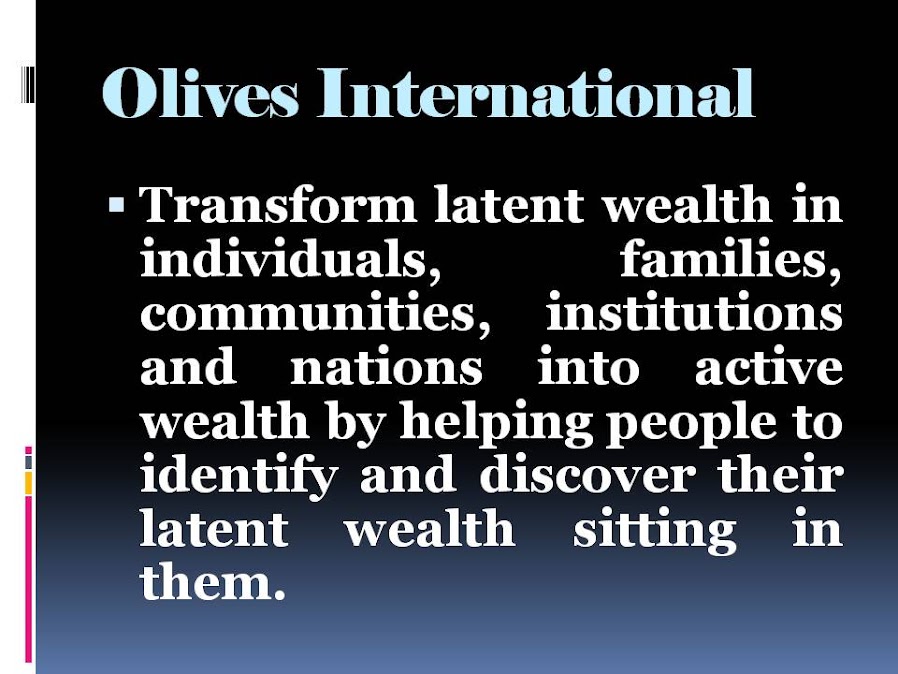Written by Uyoyou Christiana Charles-Iyoha
Ironically, the diligent virtuous woman of Proverbs Chapter
31 verses 10 to 31 worked smart and hard to own and maintain a vineyard in
addition to running a home efficiently and managing a fashion business profitably.
Unlike the lazy young man devoid of understanding, the diligent virtuous woman
was enriched and had property to leave to her children and children’s children.
The young man unfortunately destroyed what he was blessed with through waste
while the virtuous woman built wealth by adopting a zero waste policy and
attitude. Whatever free time she had was ploughed into and invested in her
fashion business while the profit from the fashion business was ploughed into
owning and maintaining a vineyard. She did not fritter time in idleness,
gossip, sleep and slumber. Everything she touched owned was always invested and
not wasted.
Time is also a major resource that should never be wasted.
Great examples of great investors of time include the Lord Jesus Christ, the
Apostle Paul, the diligent and virtuous woman of Proverbs Chapter 31 verses 10
to 31, the biblical Joseph, Daniel, and Nehemiah as well as the prophetess Anna
who spent nights and days in the temple fasting and praying. Significantly,
Anna had no children to labor for in prayers yet she spent quality time praying
for the manifestations of the plans and purposes of God for humanity. That time
could have been spent by Anna in idle chatter and gossip. After all some of the
widows described in the book of 1st Timothy engaged in such trifles
for which they were cautioned. But Anna chose to invest that time in the
service of God for kingdom purposes.
What a person does with time either amounts to investment of
time and resources or frittering of time and resources in unprofitable
ventures. Be proactive – a great way to invest time. When you are proactive,
you will plan ahead of time and prepare for contingencies. Contingencies will
not take you by surprise and have you shopping for time to come up with solutions
to the contingencies. But when you are proactive, you would have prepared for
the contingency and would simply implement the solutions when the contingencies
show up.
Procrastination is also a way of wasting resources because
as you procrastinate on a task, the task does not get accomplished. So if it is
a tear, any repair work, the tear or damaged part gets worse and ultimately you
end up expending more energy and deploying additional resources to accomplish
the task. If the young man had cared for his vineyard when he should have; weed
the vineyard, fix cracks in the wall as they showed up, the vineyard would not
have been taken over by weeds and the wall would not have broken down.
If it is information that is required to take an urgent
decision, procrastination keeps you ignorant and indecisive and of course the
decision is not taken and what ought to be done urgently is not done. For
instance, can you imagine what would have happened if Joseph procrastinated on
securing the surplus food resources from the bountiful harvests; some or all of
the food would have rotted and there would have been no food during the seven
years of famine. If the widow of the indebted prophet had procrastinated, her
sons would have gone into debt bondage. If blind Bartimaeus had procrastinated
to call on Jesus and assumed that Jesus would pass through that place at a
later date, he would have remained blind. Procrastination is not only the thief
of time, it is the forerunner to waste and destruction and poverty; it is also
a great satanic tool for activating waste, poverty and destruction.
Significantly, procrastination is not only physical but also
mental and spiritual especially spiritual and instructively, spiritual
procrastination is the forerunner to mental and physical as well as other forms
of procrastination. For instance, when we fail to activate and walk in a loving
and fervent relationship with God, we lose the grace to receive myriad
blessings from God such as the grace for divine wisdom, sure guidance from the
Holy Spirit to accomplish divine purpose and live truly fulfilled lives.
Adopt a zero waste policy and attitude and see what
transformations, surplus and abundance will come your way in the mighty name of
Jesus Christ.











